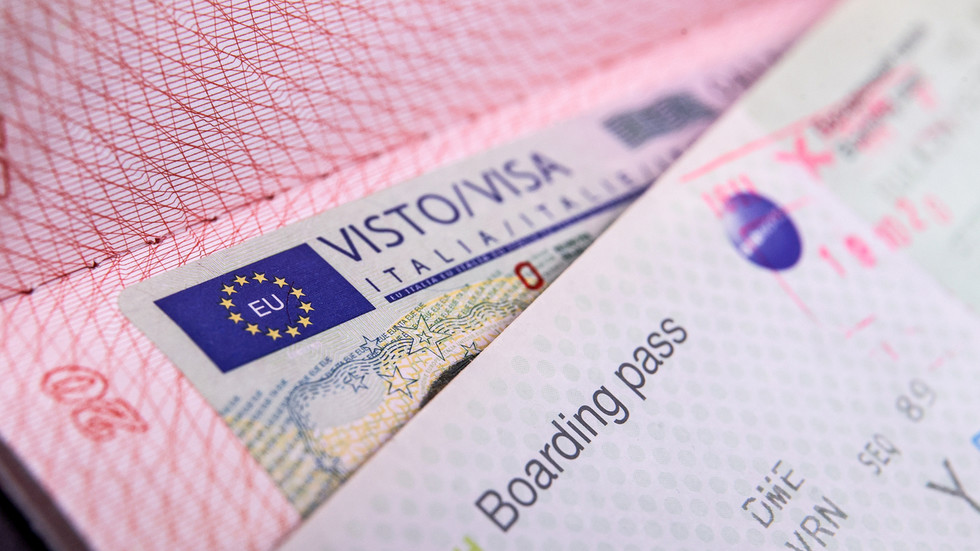
Many Russian diplomats are “spies,” Prague believes, according to news outlet Der Spiegel
FILE PHOTO. © Global Look Press / Sergey Bulkin
Russian diplomats should be confined to their destination countries within the EU and not allowed to move freely around the bloc, the Czech government has argued, according to Der Spiegel. Prague regards Moscow’s diplomatic staff as “spies” probing for potential weaknesses in the bloc, the German outlet reported on Saturday, citing official documents.
The Czech authorities have been seeking to restrict freedom of movement for Russian diplomats since at least last summer, the article claims. The nation’s foreign minister, Jan Lipavsky, reportedly revisited the issue last month during an EU Foreign Affairs Council meeting in Luxembourg.
“Espionage and propaganda are the main tasks of many Russian diplomats in the EU,” according to a document presented by Prague earlier the same month in Brussels, according to Der Spiegel. The list of alleged activities of Russian diplomatic mission staffers reportedly includes “logistics for sabotage and acts of terrorism.”
Read more
“Hundreds” of Russian “agents” are currently able to move across the EU virtually uncontrolled, Prague warned, demanding that any future Russian diplomatic mission staffers be granted visas only for their destination countries instead of visas for the 29-country Schengen Area. Any such diplomat traveling across the EU should then be “forced” to present their ID and a travel permit at international control points, the paper drafted by the Czech authorities reportedly recommends, arguing that these measures would not require “systematic” border controls within the Schengen area.
“The freedom of movement of Russian spies throughout the Schengen area is not a diplomatic privilege,” Prague stated, according to the magazine.
The initiative was met with skepticism, the article continued, by other EU members, including Germany, which argued that the measure would be difficult to implement and would lead to retaliatory measures from Moscow. Damage to the EU might eventually be greater than to Russia, some believe.
Read more
The Czech authorities reportedly dismissed these arguments by claiming that any tit-for-tat response on Moscow’s part would somehow be a violation of international law. Russia has so far not commented on the proposed restrictions on movement.
Prague’s concerns were reportedly shared by the German domestic security service (BfV), which is responsible for counterintelligence measures. “Almost all diplomats accredited in Germany work at least part-time for the Russian secret services,” the security officials believe, according to Der Spiegel.
The report came weeks after two men were arrested in Germany on suspicion of planning to sabotage local military infrastructure and of “working for Russia.” At least one of the two suspects allegedly had a contact within the Russian “intelligence service,” according to the German Prosecutor General’s Office.
Moscow has dismissed the claims about Russian involvement in these types of plots as “absurd and ridiculous.” It called the incident in Germany a “blatant provocation” aimed at stirring up Russophobia and spy hysteria.




